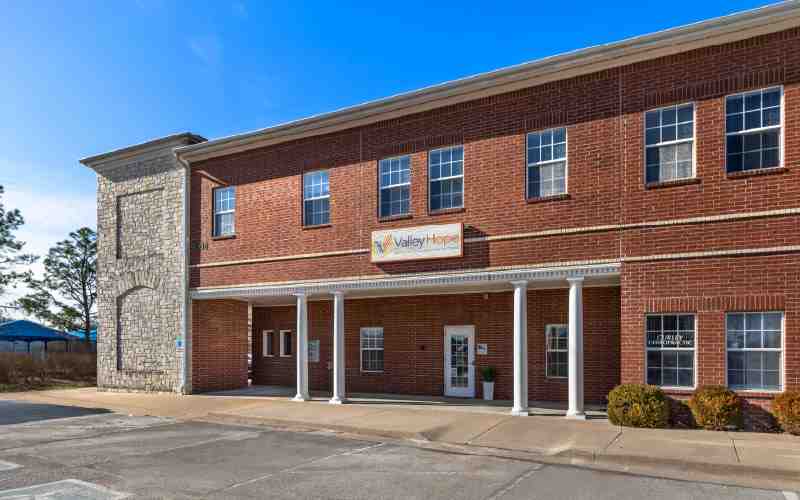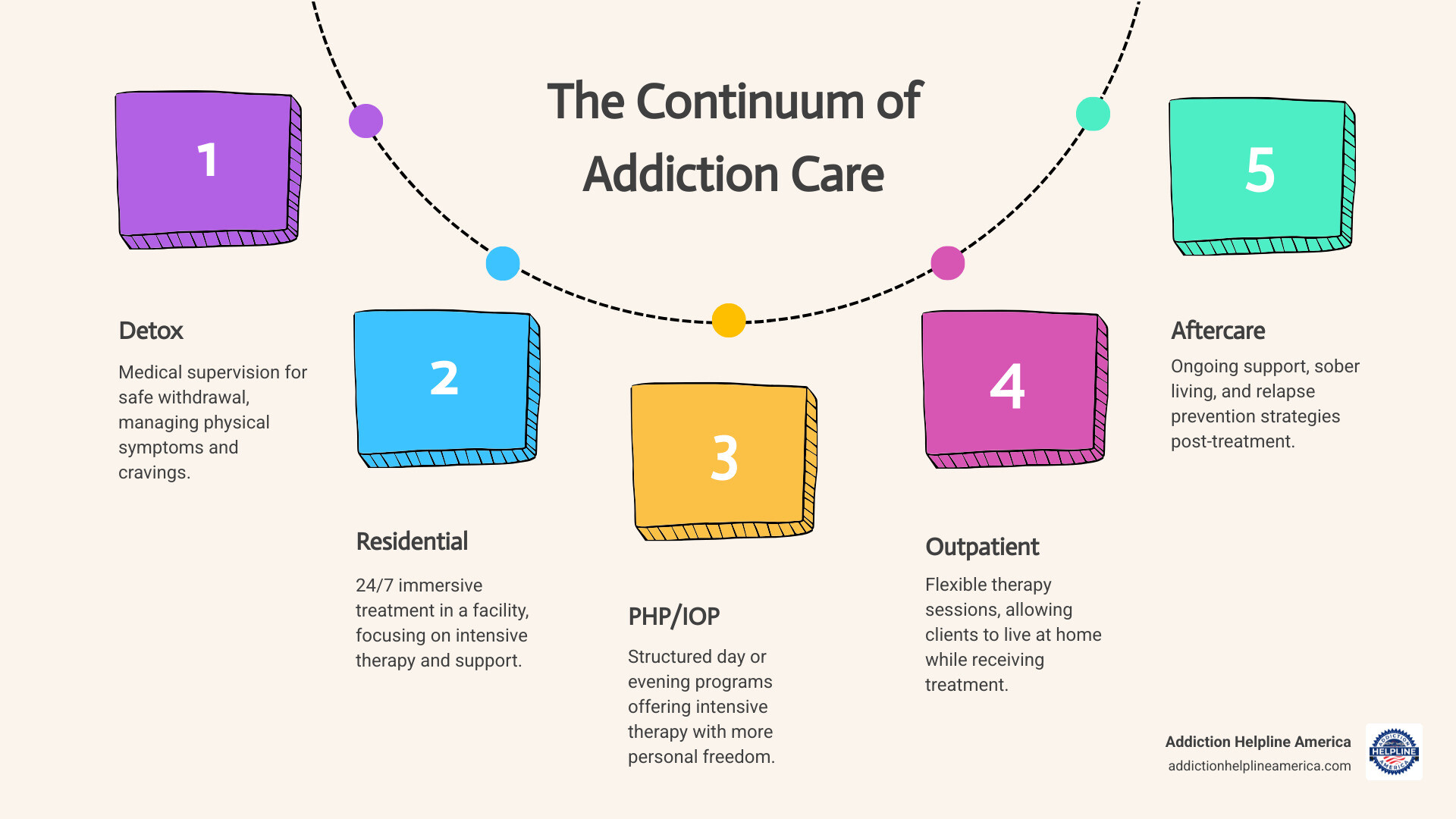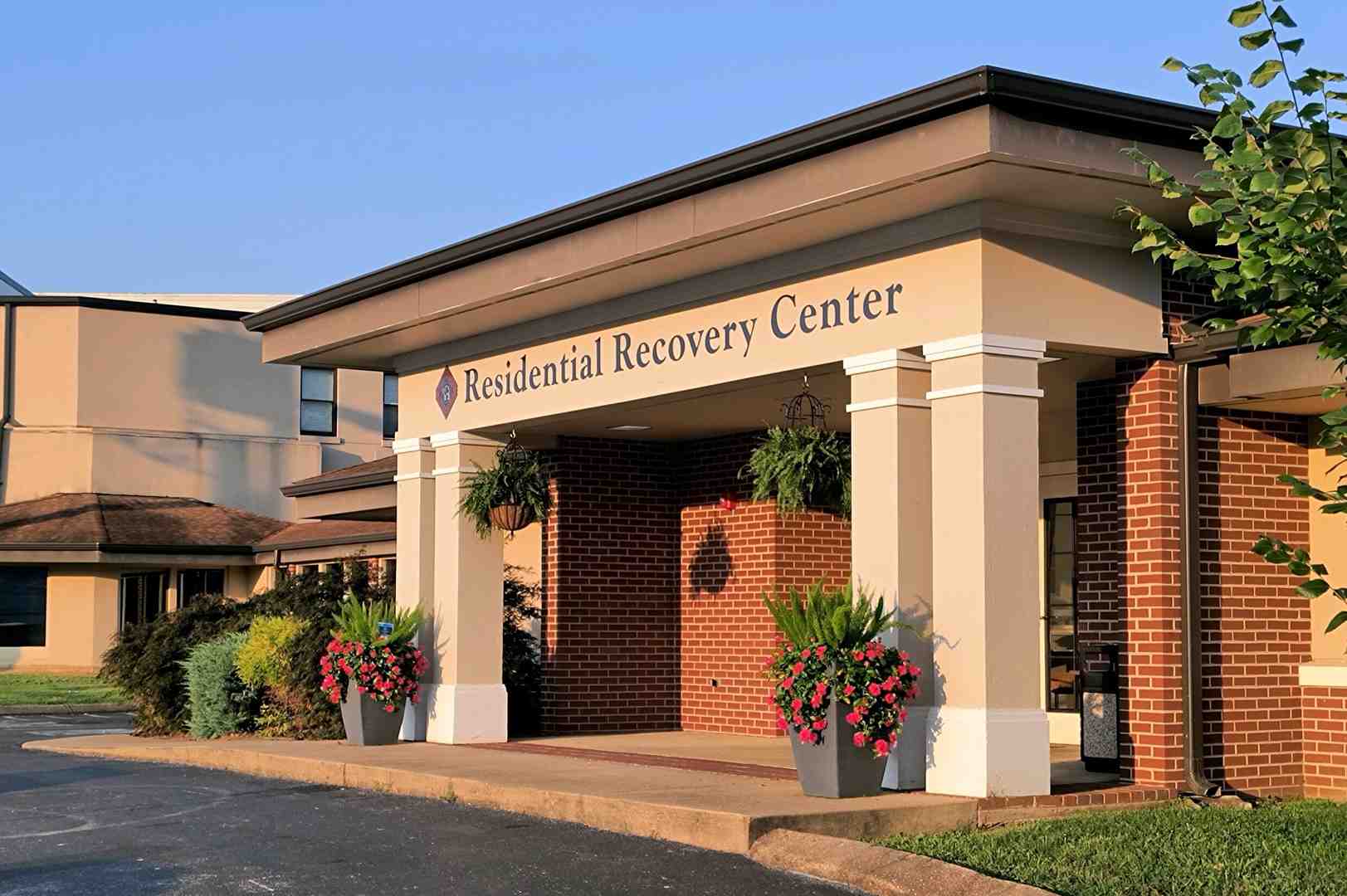
Finding Hope: Your Guide to Addiction Treatment Options in Tulsa
If you’re searching for rehabs in Tulsa, you’ll find a comprehensive network of treatment facilities. Options range from detox and residential care to various outpatient programs. Payment is flexible, with numerous centers accepting Medicaid, private insurance, TRICARE, and self-pay options. Costs can range from around $4,164 for outpatient to $16,947 for residential treatment.
The need for quality addiction treatment in Tulsa is urgent. In 2019, Tulsa County had the seventh highest overdose hospitalization rate in the country, with opiates and prescription medications being major contributors. Every week, 94 Oklahomans are hospitalized due to drug abuse.
Despite these statistics, recovery is possible. Tulsa offers a diverse range of treatment centers, including specialized programs for women, men, veterans, and those with co-occurring mental health disorders. Whether you need inpatient care or flexible outpatient services, there is an option that can work for you.
As Addiction Helpline America, we help individuals and families steer the landscape of rehabs in Tulsa. Our mission is to provide confidential support and connect you with the right treatment for your unique situation, cutting through the confusion to help you start your recovery journey.
Simple rehabs in tulsa glossary:
The State of Addiction in Tulsa: Statistics and Local Laws
Understanding the local context of addiction in Tulsa highlights the importance of accessible treatment. The numbers tell a difficult story, but they also show why quality care matters.
Tulsa County has faced a serious substance abuse challenge, recording the seventh highest overdose hospitalization rate in the country in 2019. Opiates are a primary driver, responsible for one in five overdose hospitalizations, while prescription anxiety medications account for 15%. Statistics also show that while women are 50% more likely to be hospitalized for drug-related emergencies, men are twice as likely to die from an overdose.
In response, Oklahoma has enacted several key laws to support recovery. Mental Health Parity Laws mandate that insurance companies cover addiction and mental health treatment similarly to physical health conditions. The Good Samaritan Overdose Prevention Law provides legal protection to those who call for help during an overdose, prioritizing saving lives over prosecution. Additionally, laws like House Bill 1446 aim to reduce prescription drug abuse by preventing fraudulent prescriptions and improving how opiates are tracked.
These laws create a supportive foundation, but finding the right help is still crucial. That’s where rehabs in Tulsa come in. You can explore all your options in our Rehab in Tulsa directory.
Navigating the Different Types of Rehabs in Tulsa
Finding the right treatment means understanding the different levels of care offered by rehabs in Tulsa. Each serves a specific purpose on the recovery journey, and you may move between levels as you progress.
-
Medical Detoxification: This is often the first step, providing medically supervised management of withdrawal symptoms from substances like alcohol, benzodiazepines, or opioids. It’s a crucial, safe start to recovery, with about 5 programs within 10 miles of Tulsa.
-
Residential Treatment: This involves living at a facility for 30 to 120 days in a structured, trigger-free environment. Days are filled with individual and group therapy, focusing entirely on healing. Roughly 6 residential programs operate within 50 miles of Tulsa.
-
Partial Hospitalization Programs (PHP): A step-down from residential care, PHPs offer intensive daily treatment while you return home or to sober living in the evenings.
-
Intensive Outpatient Programs (IOP): IOPs provide flexible yet structured support, with therapy sessions for a few hours, 3-5 days a week. This allows you to maintain work, school, or family life. The average cost for a 3-month IOP is $7,336.
-
Standard Outpatient: The least intensive option, involving weekly therapy and support groups. It’s ideal for milder issues or as a final step-down in care. The average cost for 4.5 months of treatment is $4,164.
Quality programs employ licensed professionals—counselors, therapists, and medical staff—trained in evidence-based approaches and treating co-occurring mental health conditions.
| Feature | Inpatient (Residential) Treatment | Outpatient Treatment (IOP/Standard) |
|---|---|---|
| Structure | Highly structured, 24/7 supervision | Flexible, allows for external responsibilities |
| Cost | Generally higher (average $16,947 for 3.25 months) | Generally lower (average $7,336 for 3 months IOP) |
| Intensity | Immersive, constant therapeutic engagement | Regular, but less constant therapeutic engagement |
| Environment | Removed from triggers, safe, therapeutic community | Engages with daily life, practicing skills in real-time |
| Ideal Candidate | Severe addiction, co-occurring disorders, unstable home environment | Less severe addiction, stable home, work/school commitments |
The Benefits of Inpatient vs. Outpatient Treatment
Choosing between inpatient and outpatient care depends on your specific needs. Inpatient treatment offers complete immersion in recovery with 24/7 support in a safe, drug-free environment, which is critical for those with severe addiction or unstable home lives. Outpatient treatment provides flexibility, allowing you to practice recovery skills in your daily life while maintaining work and family commitments at a lower cost. The right choice depends on the severity of addiction, your support system, and personal responsibilities. For more detailed information, visit our treatment options page.
Finding Specialized Addiction Programs
Many rehabs in Tulsa offer specialized programs for specific populations:
- Women’s Programs: Centers like Palmer’s Tulsa Women and Children’s Center (TWCC) allow mothers to bring their children to treatment, addressing trauma, parenting, and addiction.
- Men’s Programs: Facilities like The H.O.W. Foundation offer no-cost residential programs focused on the Twelve Steps, work ethic, and peer accountability.
- LGBTQ-Friendly Care: Many facilities now provide culturally competent care in a safe, affirming environment that understands the unique stressors faced by the LGBTQ+ community.
- Veterans Programs: The Eastern Oklahoma VA Health Care System specializes in care for veterans, integrating treatment for PTSD and substance abuse.
- Adolescent Programs: Centers like YouthCare of Oklahoma offer age-appropriate therapies for young people, with a strong focus on family involvement.
- Dual Diagnosis Treatment: Laureate Psychiatric Clinic and Hospital specializes in treating addiction and co-occurring mental health conditions like depression or anxiety simultaneously.
Finding a program that understands your background improves the chances of long-term recovery. As Addiction Helpline America, we help you find the right fit.
A Closer Look at 10 Prominent Tulsa Rehab Centers
To help you find the right fit, here is a closer look at some of the most respected rehabs in Tulsa. Each facility has its own strengths and serves different needs, offering a starting point for your search.
Tulsa Women and Children’s Recovery Center
Palmer’s Tulsa Women and Children’s Center (TWCC) offers a unique residential program where mothers can bring their children into treatment. This approach allows women to focus on recovery without being separated from their kids. The program integrates drug and alcohol treatment with trauma therapy, parenting skills, and mental health support, healing the entire family unit.
Find out more about this center
Tulsa Outpatient Recovery Center
Valley Hope of Tulsa specializes in flexible outpatient care, including Intensive Outpatient Programs (IOP) and telehealth options. Their programs are designed to fit around work, school, and family life. Valley Hope is known for its caring staff and strong emphasis on family support programs, providing education and resources for loved ones to heal alongside the individual.
Find out more about this center
Men’s Recovery Foundation of Tulsa
The H.O.W. Foundation (Honest, Open-Minded, Willing) provides a completely no-cost residential recovery program for men. Rooted in the 12-Step tradition, the program emphasizes a strong work ethic and personal accountability. A key feature is its peer-support model, where all staff members are graduates of the program, offering guidance from lived experience.
Find out more about this center
Women’s Recovery Services of Tulsa
Resonance Center for Women specializes in helping women involved with the justice system, offering both inpatient and outpatient programs. The center provides a supportive and compassionate environment for women who are often court-ordered to treatment and fighting to regain custody of their children or avoid incarceration. Recovery focuses on rebuilding lives and repairing relationships.
Find out more about this center
Grand Recovery Center
Grand Addiction Recovery Center offers a full continuum of care, including detox, residential, and outpatient services. A major focus is their integrated treatment for co-occurring disorders, addressing mental health conditions like depression and anxiety alongside addiction. Their comprehensive approach ensures clients receive support at every stage of their recovery journey.
Find out more about this center
Tulsa Medication-Assisted Treatment Center
The Tulsa Comprehensive Treatment Center specializes in Medication-Assisted Treatment (MAT) for opioid addiction. This life-saving approach combines FDA-approved medications like methadone and buprenorphine (Suboxone) with individual counseling. The medications reduce cravings and withdrawal symptoms, allowing individuals to focus on the psychological aspects of recovery.
Find out more about this center
Adolescent & Young Adult Recovery Center
YouthCare of Oklahoma provides specialized treatment for teenagers and young adults, recognizing their unique developmental needs. Programs incorporate age-appropriate therapies, behavioral health services, and a strong emphasis on family involvement. The goal is to equip young people with healthy coping skills before addiction can derail their future.
Find out more about this center
Veteran Recovery Services of Tulsa
The Eastern Oklahoma VA Health Care System’s Tulsa BMC delivers veteran-specific care that addresses the unique challenges of military service. The facility integrates PTSD and substance abuse treatment, understanding that they often co-occur. Staff are trained in military culture, and the center accepts TRICARE and federal funding to ensure care is accessible to service members.
Find out more about this center
Tulsa Counseling and Recovery Services
Counseling and Recovery Services of Oklahoma offers flexible outpatient care with robust telemedicine options, making treatment accessible to those with transportation or scheduling challenges. Beyond evidence-based therapy like the Matrix Model, they provide wraparound support services, including job training and housing assistance, to promote stable, long-term recovery.
Find out more about this center
Laureate Behavioral Health Center
Laureate Psychiatric Clinic and Hospital is an expert in dual diagnosis treatment, simultaneously addressing complex mental health disorders and substance abuse. They offer a full continuum of behavioral health services, including inpatient and outpatient options, in a structured environment. Laureate is ideal for individuals needing integrated care for complex, co-occurring conditions.
Find out more about this center
Understanding the Cost of Rehab and Payment Options in Tulsa
One of the biggest concerns about treatment is cost, but rehabs in Tulsa are often more affordable than you might think. The average cost in Tulsa ($52,085) is lower than both the state and national averages. However, costs vary widely by program type.
Without insurance, average total costs are approximately:
- $16,947 for a 3.25-month residential stay
- $7,336 for a 3-month intensive outpatient program (IOP)
- $4,164 for a 4.5-month standard outpatient program
- $14,950 for nearly two years of methadone maintenance
Very few people pay these full amounts out of pocket. Numerous payment options make treatment accessible:
- Private Health Insurance: Thanks to parity laws, most plans from insurers like Aetna, Blue Cross Blue Shield, and Cigna cover a significant portion of treatment. 13 facilities near Tulsa accept private insurance.
- Medicaid: For those with limited income, 19 programs in the area accept Medicaid.
- TRICARE: 6 facilities accept military insurance for service members, veterans, and their families.
- Self-Pay and Sliding Scale: 14 facilities accept cash, and many offer sliding scale fees based on your income.
- Other Funding: Options also include state insurance programs and funding for Native Americans through IHS, tribal, or ITU programs.
Navigating insurance can be confusing. Addiction Helpline America exists to help you understand your coverage and find a treatment center that fits your budget. The cost of treatment is an investment in your life, and we’re here to help make it possible.
Frequently Asked Questions about Rehabs in Tulsa
Considering treatment brings up many questions. Here are answers to some of the most common ones we hear about rehabs in Tulsa.
How do I choose the right rehab in Tulsa for my needs?
The “best” rehab is the one that fits your unique situation. To find it, consider these factors:
- Get an Independent Assessment: A healthcare expert not affiliated with a specific center can recommend the right level of care for you.
- Check Staff Qualifications: Ensure the facility employs licensed counselors, therapists, and medical staff with credentials in addiction treatment.
- Understand Treatment Methods: Look for evidence-based approaches like CBT or DBT and ask how they will tailor a plan for you.
- Consider Program Length: Meaningful recovery often takes longer than 30 days. Look for programs with flexible lengths of stay.
- Ask About Family Involvement: Programs that include family therapy and education can significantly improve outcomes.
- Look for Accreditations: Accreditations from CARF or The Joint Commission indicate a commitment to high standards of care.
What happens after completing a treatment program?
Completing a program is the beginning of your recovery journey, not the end. A strong aftercare plan is essential for long-term success. This typically includes:
- Ongoing Support: Continuing therapy and participating in alumni programs to stay connected to a sober community.
- Sober Living Homes: These provide a structured, drug-free environment to transition back to daily life after residential treatment.
- Support Groups: Regular attendance at groups like Alcoholics Anonymous (AA), Narcotics Anonymous (NA), or non-12-step alternatives like SMART Recovery provides crucial peer support and accountability.
We can help you find resources for ongoing support after your initial treatment ends.
Can I be forced to go to rehab in Tulsa?
While you can’t physically force an unwilling adult into treatment, there are ways to encourage them to accept help. For treatment to be effective, the person must be willing to participate, but sometimes external factors can provide the necessary push.
- Court-Ordered Treatment: The legal system can mandate rehab as an alternative to jail time. Many people who start this way eventually accept their recovery.
- Professional Interventions: A structured, guided conversation where loved ones express their concerns and present a clear choice: accept help or face consequences.
- Family Boundaries: Refusing to enable destructive behavior while expressing compassion can help a person realize they need to change.
We can provide confidential guidance on these sensitive situations.
Conclusion: Your Path to Recovery Starts Today
If you’re reading this, you’ve already taken the courageous first step of acknowledging that help is needed. You are not alone in this journey.
As this guide shows, the landscape of rehabs in Tulsa is diverse, with options ranging from intensive residential care to flexible outpatient programs. There are specialized centers for women, men, veterans, and those with co-occurring mental health conditions. While local statistics are sobering, they don’t capture the thousands of success stories. Recovery is possible, and it can happen for you.
Finding the right fit is the key. The best program is the one that aligns with your specific needs, budget, and circumstances. Navigating these options can feel overwhelming, but you don’t have to do it alone. Addiction Helpline America provides free, confidential guidance to help you cut through the confusion and connect with a Tulsa rehab that makes sense for you.
Your path to a better life starts now. Reach out, ask questions, and let us help you take the first step.
Our helpline is 100%
free & confidential
If you or someone you care about is struggling with drug or alcohol addiction, we can help you explore your recovery options. Don’t face this challenge alone—seek support from us.
Programs
Resources
Will my insurance
cover addiction
treatment?
We're ready to help
Find the best
drug or alcohol treatment
center
Are you or a loved one struggling with addiction? Call today to speak to a treatment expert.















